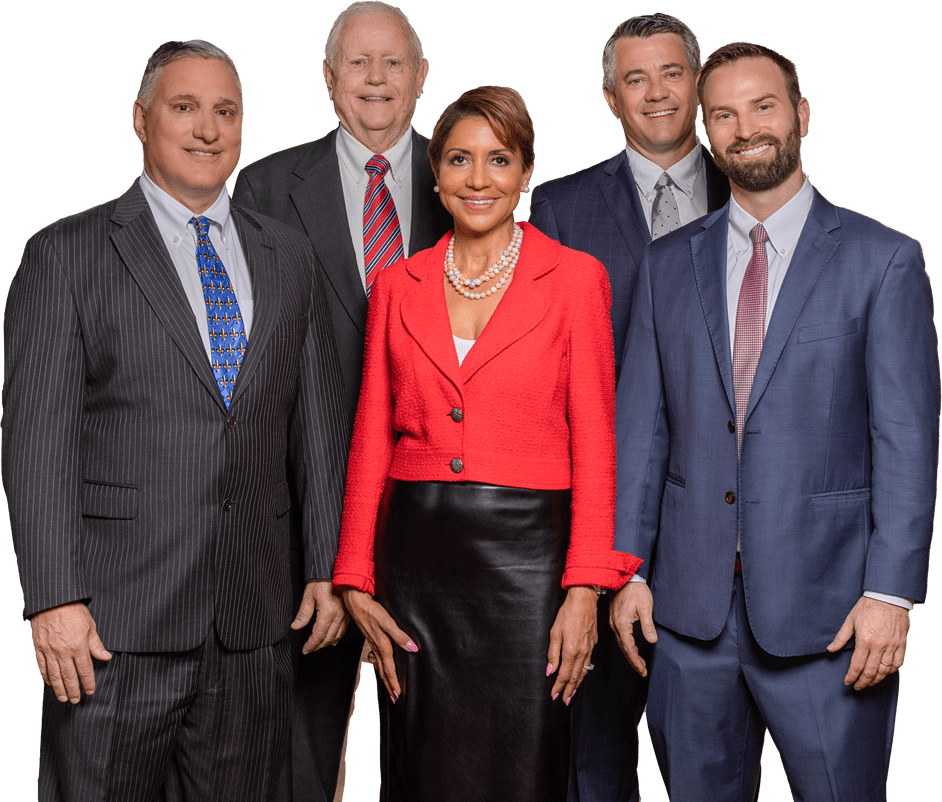
Back on a Sunday morning in January, a car hit a guardrail on I-10’s Basin Bridge, in Iberville Parish. As the sheriff’s department and state troopers responded and tried to clean up the accident, a FedEx truck smashed through the scene, causing a demolition chain reaction.
The FedEx truck blasted through the traffic cones and hit the Motorist Assistance Patrol truck (MAP). The MAP truck slammed into a police car which in turn slammed into a tow truck that had come to transport the wrecked car.
The tow truck driver suffered serious injuries and had to be airlifted off the side of the interstate. A sheriff’s deputy was also hospitalized. The driver oaf the FedEx truck was arrested for failure to obey signs, careless operation, and negligent injuring.
On a summer evening, just north of Lake Charles, a 21-year-old FedEx driver went west down state Highway 12. In the mix of Beauregard Parish’s five o’clock traffic, the young driver tried to pass the vehicle in front of him. It was a no-passing zone.
As the FedEx truck crossed the centerline, he was met with oncoming traffic. The FedEx truck sideswiped a 2006 Chevrolet Silverado. A 30-year-old passenger in the Silverado was killed instantly. Both drivers suffered minor injuries and were transported to the hospital.
The FedEx company released statements sending the families and friends their deep sympathies, claiming that they plan to cooperate with all investigations and that safety was their highest concern.
But how much is the FedEx company responsible for incidents like these?
According to 2019 data from the National Highway Traffic Safety Administration (NHTSA), approximately 159,000 people suffered injuries in crashes involving large trucks like delivery trucks and big rigs. These types of crashes also accounted for more than 5,000 deaths in the same year.
Typically, crashes involving commercial trucks can be a complex tangle of who is responsible. In a regular vehicle accident, a claim against an at-fault driver and their insurance company can be simple, and this may be the case when a commercial truck is independently owned, but in a commercial truck crash, it usually results in claims filed against multiple parties, which may include the:
It is crucial for those involved in a commercial truck crash to discover the answer to a few key questions:
– Crashes happen for all sorts of reasons, but often in crashes involving commercial trucks, the drivers are fatigued, distracted, or speeding. In some cases, they have been under the influence of drugs and alcohol. Any of these factors can make for a careless driver.
– This is often referred to in legal circles as respondeat superior. This means if an employee gets into an accident during the course and scope of their employment, the employer can be held vicariously liable for the negligent acts of the driver.
Different states have different laws when it comes to proving a driver’s employee status with a trucking or delivery company. In some cases, drivers both own and operate their own rig. In determining a trucker’s owner/operator status, their schedule and ability to contractually work for other trucking companies need to be evaluated. It is also important to establish who pays for the truck’s insurance, permits, and registration.
If a driver is deemed as an employee of a trucking company at the time of an accident, the next step is verifying the driver was in the act of working or within the scope of employment when a crash happens. Louisiana courts may question a driver’s scope of employment by evaluating:
Employers are typically not responsible if a driver intentionally crashes because this is not seen as the scope of employment.
After an investigation of the crash report and any other relative evidence, an accident reconstruction specialist or a host of additional experts may be consulted to get a true understanding of just what occurred.
Regulations from truck drivers, trucking companies, standard maintenance and parts manufacturers are subject to local, state, and federal regulations. These laws control how long drivers can drive without resting, how much cargo weight trucks can haul, among a litany of other elements associated with the trucking industry.
Because of this stratum of regulations, commercial truck drivers are required to carry more insurance than other vehicles. Often one or more of these regulations are violated when engaged in a crash. This offers an increased chance of winning a claim against a commercial truck driver and their employer.
If the driver was seen as an employee, a claim may name several entities as defendants. These multiple defendants may be responsible for different portions of the damages, or they may be equally liable.
The monetary compensation sought from all the liable parties should be enough to recover the losses and costs and losses that occurred because of the crash. According to Louisiana law, the requested compensation should be commensurate to:
Damages may also fall outside of financial parameters. These may include:
In Louisiana, the victim of a crash involving a trucking company has one year from the date of the crash to file a claim.

With over 50 years of legal experience serving families in the New Orleans area and surrounding Louisiana communities, our firm takes pride in providing clients with personalized legal services tailored to individual needs.